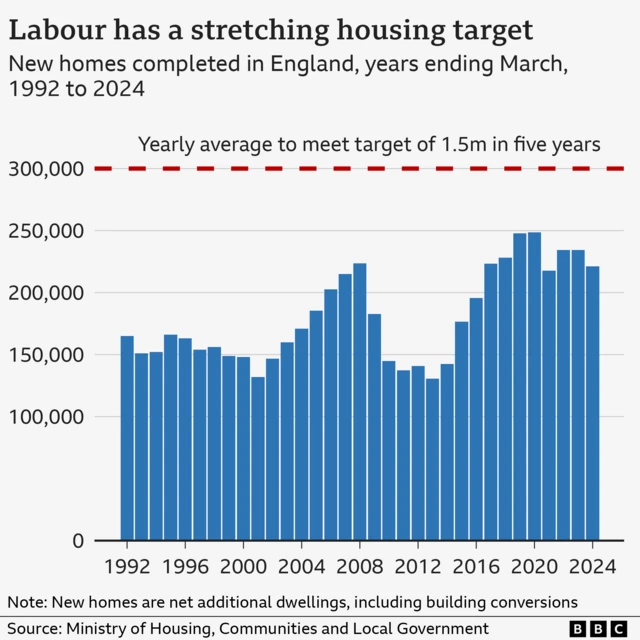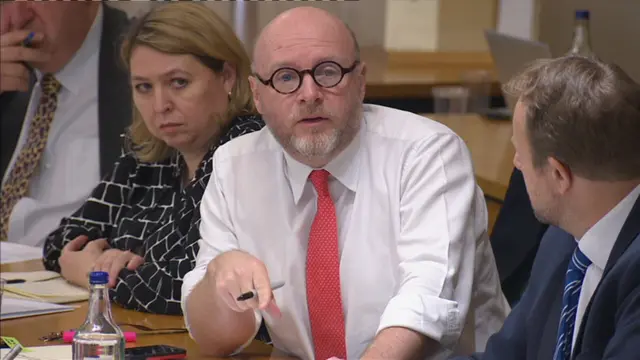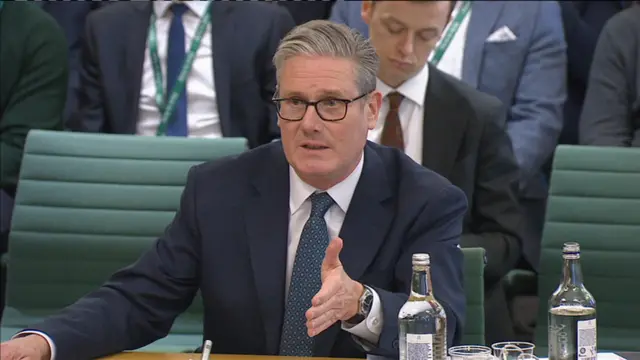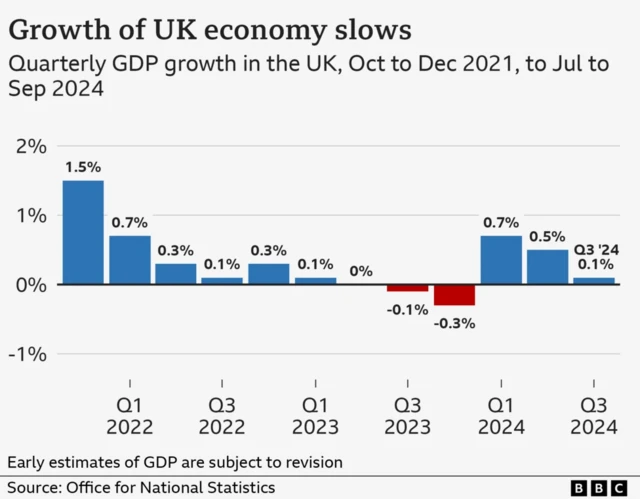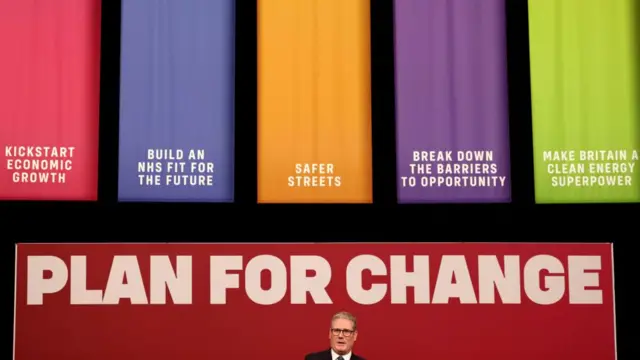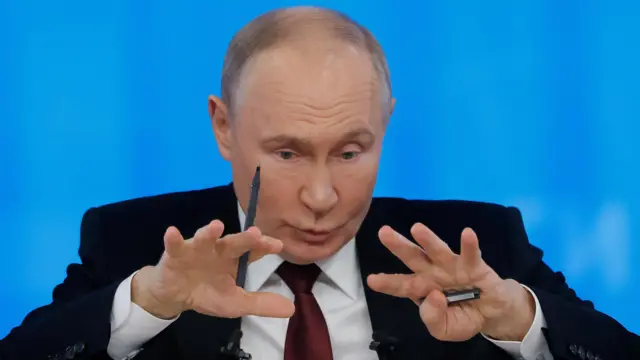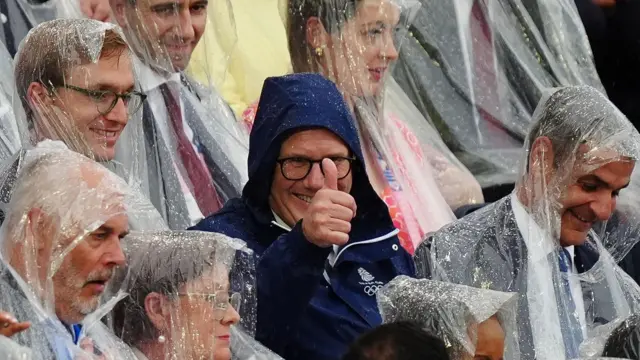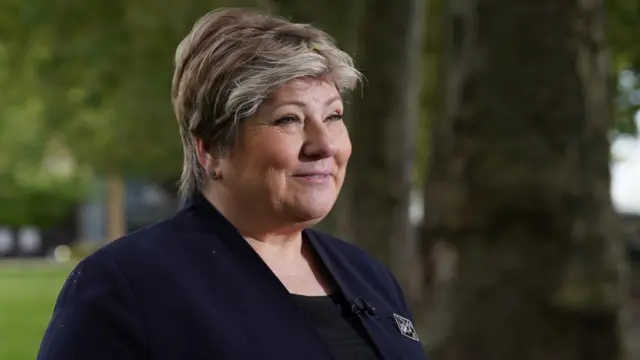
How challenging is the 1.5 million homes target?published at 15:22 GMT 19 December 2024
By Gerry Georgieva, BBC Verify
The prime minister was asked if he thinks his government can achieve its target of delivering 1.5 million additional homes in England by the end of this Parliament in 2029.
"Yes. That's why I set it out. I accept it's difficult, I accept it's stretching but it's hugely important," he said.
It would equate to 300,000 homes per year.
The most recent data, external shows that only 221,070 net additional dwellings were delivered in 2023-24, a decline of 6% on the previous year.
The number of housing projects given the go-ahead by councils in England also reached a record low in the final months of the last government.
Think tanks say the government would struggle to meet its target without more radical planning system reform, external and more direct public investment, external in new homes.
The Home Builders Federation also recently warned that the UK doesn’t have enough construction workers to build the 1.5 million homes.
